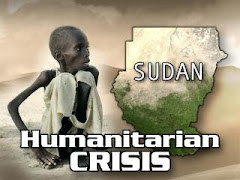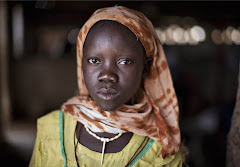I think all people are born good. I believe that experiences when we are young shape your character and who you become. Children are innocent and the world eventually leaves an impression on them, so the better or worse. In the novel, They Poured Fire on Us From the Sky, the boys see older soldiers and learn from their actions. Many of these soon to be soldiers are not taught that killing is wrong, they actually form the desire to kill because "they'd seen a lot of killing and they also wanted to kill" (127). Although many young boys may see older soldiers and think their guns and uniforms are cool, killing is a whole different story. Once you have the gun in your hands, I would think you would have to override your conscience in order to kill someone (if they were not attacking you). Many of the soldiers must silence their conscience or ignore it in order to allow themselves to commit these actions.
Fear and self preservation are other factors that may motivate soldiers to kill. The Janjaweed soldiers may feel that if they do not fight against the SPLA soldiers, the government will turn against them. Therefore, many may believe that if they don't fight, they will die.
A person's circumstances also has a significant affect on what they are or are not willing to do. For example, in the book They Poured Fire on Us From the Sky, Alepho says "I did silly things: got angry over nothing, fought. It was my way of dealing with our situation" (118). Many people take their anger and fear out on those around them. This reminds me of the old saying, the boss yells at the husband, the husband comes home and yells at the wife, wife yells at the child, the child kicks the dog. The saying can relate to Sudan because the government may be cruel to the Janjaweed, and the Janjaweed are angry or scared of more violence so they hurt the Sudanese civilians. The SPLA may also be hurt by the government and their lack of support and may therefore be taking out their anger on the Janjaweed.
When someone inflicts pain on another human or animal, they often hurt themselves just as much or more than the victim. In some part (small or large) part of a soldier's mind and heart, there must be an overwhelming sense of guilt, confusion, fear, and lack of confidence. They must fear that someone will murder them, like they have murdered others. Their confusion and lack of confidence is a result of their suppressed conscience. Your conscience is what often decides the difference between right and wrong and helps you make you decisions. Therefore, when you silence this force, or when it is raging, trying to tell you what you are doing is wrong, you lose the ability to decipher between right and wrong.
Many people let others convince them to fight through guilt. People may say that you need to fight for your country, that others fought for you and now it is your turn. A boy, Alepho, in the book named above felt this at one level or another because he had a dream where a skull (the leftover of a victim in warring Sudan) said to him "'Son, you will fight this war. We all paid for it. Everybody will pay for it" (301). But if you let someone convince you that you need to become something you are not or that you do not want to be, that if your fault for not standing up for yourself before you lose the power to control yourself at all.
Some people might argue that young kids do not have a choice in whether or not they become soldiers. Yes, they do have a choice. Many boys (including the three boys in They Poured Fire on Us From the Sky) escaped the camps and the military training or they died trying. You always have a choice in everything you are offered or things people attempt to force on you. If you accept, often times you will lose your life and independence. If you reject, then you will save your own life and the lives of others through your courage.
Sources:
They Poured Fire on Us From the Sky
Subscribe to:
Post Comments (Atom)








No comments:
Post a Comment